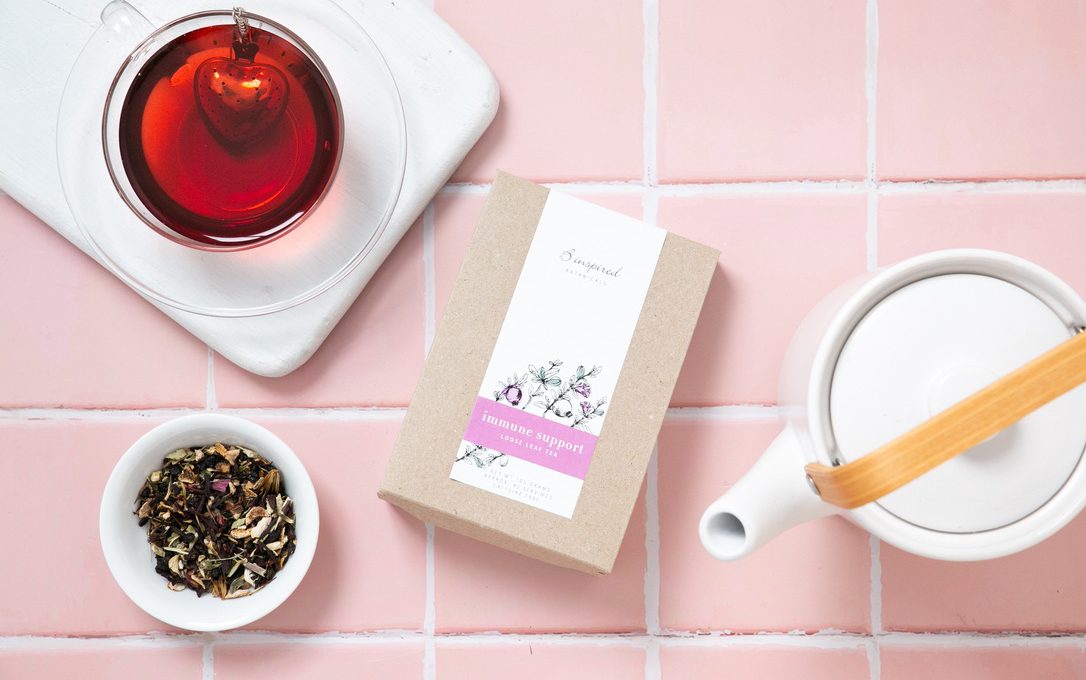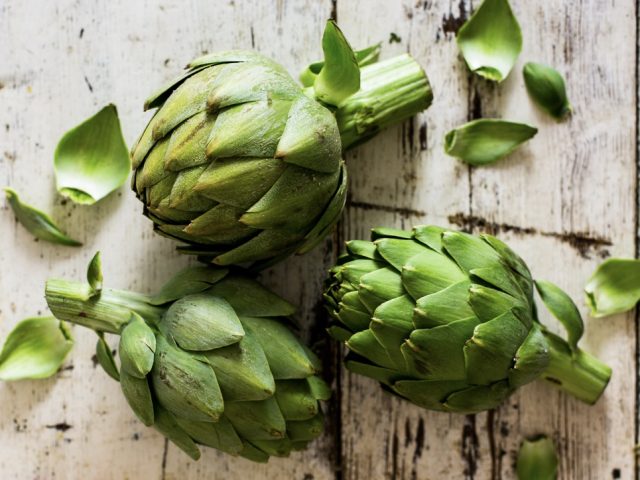Strengthen your immune system. Your immune system is one of the most complex systems in the body. It operates 24/7 to identify and eliminate viruses and bacteria that can make you sick. Colds and influenza (flu) are both viral respiratory illnesses but they are caused by different viruses.
The common colds is caused by over 200 different viruses, the most common are called human rhinoviruses (HRV). Colds are generally much milder than the flu and symptoms can last up to a week.
Cold symptoms can include:
- Runny or stuffy nose
- Sore throat
- Sneezing
- Cough
- Headache or body aches
- Mild tiredness
The flu is caused by a group of viruses known as influenza viruses. The flu can cause serious health problems such as bronchitis and pneumonia, which can lead to hospitalisation.
Flu symptoms include:
- Dry, hacking cough
- Moderate to high fever, although not everyone with the flu will run a fever
- Sore throat
- Shaking chills
- Severe muscle or body aches
- Headache
- Stuffy and runny nose
- Severe fatigue that may last up to two weeks
- Nausea and vomiting, as well as diarrhea (most common in children)
So what is Coronavirus?
Coronaviruses are large group of viruses that cause diseases in animals and humans. They often circulate among animals and can evolve and infect people. In humans, the viruses can cause mild respiratory infections, like the common cold, but can lead to serious illnesses, like pneumonia. Only two coronaviruses have previously caused global outbreaks SARS (severe acute respiratory syndrome), MERS (Middle East respiratory syndrome), and now the new coronavirus virus, called COVID-19. The main reason why this virus has spreads so rapidly is simply because it is a new virus that the body doesn’t recognise so the immune system has very little defence against it yet.
The severity of the symptoms with COVID-19 varies. Some people get a mild cough or a runny nose, but anyone with an underlying respiratory disorder may get more severe symptoms. The main symptoms to be aware of include fever, shortness of breath, flu like symptoms. If you think you may have COVID-19 seek medical assistance.
People who are at the highest risk are:
- The elderly.
- Anyone with pre-existing medical conditions.
- Anyone with an immune compromised condition.
- People with chronic health conditions like lung disease, diabetes, high blood pressure or cardiovascular disease.
- Anyone who has recently travelled overseas.
- Anyone who has been in close contact with an infected corona virus case.
Stay up to date with the latest information about the spread of COVID-19 through Australian Department of health.
What is the best Way to Protect Ourselves?
A virus can spread when infected people cough or sneeze and send virus-filled droplets through the air, which can spread up to one metre. The virus then infects people in close proximity and enters the body through contact with our mucosal membranes (nose, eyes and mouth). It has been found that viruses can survive up to an hour in the air in enclosed environments. Up to 3 days on hard surfaces such as stainless steel and plastic.
Ways to protect yourself:
- Wash your hands frequently with soap and hot water for at least twenty seconds.
- Use a tissue, or cough and sneeze into your arm, not your hand.
- Use single-use tissues. Dispose of the tissue immediately.
- Wash your hands after coughing, sneezing or using tissues.
- Stay home if you are sick (so you do not spread the virus to other people).
- Avoid close contact with anyone who has flu like symptoms.
- Do not touch your eyes, nose or mouth (viruses can transfer from your hands and into the body).
- Do not share cups, glasses, dishes or cutlery.
- If you have a fever, cough or difficulty breathing, seek medical care.
There is no cure for virus infections. The advantage of natural medicines is that they are able to improve the body’s natural immune-fighting ability. It is also important to know that antibiotics are ineffective against viral infections, they only work against bacterial infections. Not to mention, overuse of antibiotics include an imbalance in your gut flora, which means that bad gut bacteria could flourish.
Choose immune-boosting foods
A diet full of refined, processed, sugary foods significantly lowers your immune defence for several hours. Choose bright green, yellow and orange vegetables, rich in vitamin C and Beta-carotene. The human body converts beta carotene into vitamin A, required for healthy mucus membranes. Mucous membranes are tissues that line organs and entrance points to your body such as your nasal cavity, lungs, nose and mouth, which are the first to be hit by unwanted invading microbes. Vitamin C helps to stimulate the production of white blood cells and antibodies, boosting your immune system. Vitamin C also contains powerful antioxidant properties, keeping your body healthy all year round.
Fats – Are required in the body to aid the absorb of fat-soluble vitamins. Vitamin A is required to build strong mucus membranes. D strengthens your innate (non specific) immune system, identifying and eliminating pathogens that might cause infection. Vitamin E is a powerful antioxidant that protects cells by neutralizing free radicals. Choose goods fats such as olive oil, avocados, nuts and seeds in your diet. Vegetable oils such as soy, corn, sunflower, all contain a high concentration of the inflammatory fat omega-6, contributing to disease.
Proteins – Are made up of hundreds of smaller units called amino acids. Amino acids are the building blocks of the cells in your immune system. A lack of protein in the diet will compromise your immune system. High-quality protein includes, organic and grass fed meat and free range eggs. If you are vegetarian, you want to ensure you vary your diet so that you consume all the necessary amino acids. Include foods such as hemp seeds, quinoa, lentils, tempeh and nut butter.
Support your gut health
Broth – I’m sure you have heard of the healing benefits of bone broth as a traditional remedy for colds and flu. Broths are packed with immune boosting minerals and amino acids that have been shown to boost immunity. View health benefits of bone broth and recipe.
Keep hydrated
If you are dehydrated, toxins are more likely to accumulate in your body which can increase the overgrowth of unhealthy microbes and weaken your immune system. Herbal teas are a great way to keep hydrated during winter, squeeze some lemon juice for an added immune boost. For an immune boost try our B inspired immune support organic herbal tea or B inspired breathe easy organic herbal tea.
Green tea & Tulsi
Green tea contains a group of flavonoids called catechins, which appear to inhibit viral infections by blocking the enzymes that allow it to reproduce. Tulsi is another amazing herb with multi-purposes. Tulsi helps relieve stress and support your adrenal glands, which indirectly helps support your immune system. In addition, Tulsi is also shown as an “immunomodulator”, which refers to herbs that improve the functioning of the immune system. Brew a cup and sip it slowly, you’ll see why it’s calming and soothing on many different levels! Try our Gypsy fair organic herbal.
Get 7 to 8 hours of sleep a day
Exercise
Soak up some sun
Reduce stress
Emotional stressors stimulate the secretion of adrenal hormones, which suppress immune function. Find ways to reduce stress in your day-to-day life.
- Treat yourself to a warm bath with B inspired calm epsom bath salts.
- Take a short walk in nature.
- Turn off all electrical devices (no phone calls, emails or social media).
- Sip on some B inspired relax organic herbal tea.
- Listen to your favourite tunes.
- Try meditations. This lets your “sympathetic” – fight or flight nervous system relax and ‘switch’ into the most important, relaxing and beneficial “parasympathetic” – rest and digest nervous system… How Meditation Works – Check out headspace for some cool information to help you with your nervous system.
Immune boosting supplements & herbals
Vitamin C – In particular liposomal Vitamin C. This form of Vitamin C has a 90% absorption rate. Vitamin C boosts the body’s immune system providing a powerful anti-viral response. The body can excrete up to 50% of some powdered forms of Vitamin C, so liposomal is definitely a better option.
Beta glucans (Beta-1,3/1,6) – Are Natural polysaccharides found in the cell wall of certain bacteria, yeast, algae and mushrooms such as reishi, shiitake and maitake. Beta-Glucan modulate the immunity system to help fend off viruses, infections and colds. Beta-Glucan are also a good source of prebiotic fibre used to rebalance and repopulate the microflora in the gut and help heal the gut lining.
Zinc – A trace mineral (meaning you only need small amounts each day). It is required for boosting your immune system and wound healing. Zinc boosts the production of T and B lymphocytes to help fight bacteria and viruses. Without these cells, immune defences become weak. Foods high in zinc include – oysters, beef, lamb, almonds, lentils, pumpkin and sesame seeds. If you choose to take zinc in a supplement form, always consult with your health care provider.
Lactoferrin – Lactoferrin is one of the many proteins found in breast milk. It can exert changes on white blood cells, through increasing natural killer cell, neutrophils, and macrophage activities. Lactoferrin also affects adaptive immune cells (T-cells and B-cells).
Antiviral herbs
- Andrographis
- Echinacea
- Cat’s claw
- Elderberry
- Golden seal
- Licorice root
Immune boosting herbs
- Olive leaf
- Astragalus
- Echinacea
- Siberian ginseng
Kinds anti-viral immune boosters
- Echinacea
- Elderberry
- Olive leaf
- Garlic
Naturopath support
There are many other herbal medicines and supplements that can be used to help promote a healthy immune response. Be sure you get the right treatment plan from a qualified naturopath, based on your individual needs. Herbal mixtures can be completely individualised. Using a herbal liquid means that your individual requirements are taken into account. Not only are the herbs used in your mixture chosen ‘just for you’, a herbal liquid allows different adjustments for dosage. For instance, you may benefit from a higher dose of one herb, and a lower dose of another. Everyone is different, and your particular mixture can be adapted to suit you.
For more information on “Strengthen your immune system,” or to book a naturopathic consultation please contact Beata at B inspired healthy lifestyle.
References:
WhyPharma (2018) Common cold, facts, symptoms and treatment. Retrieved from URL: https://www.pharmagenic.blogspot.com/2018/02/common-cold-facts-symptoms-
Better health channel (State of Victoria 2017) Colds. Retrieved from URL: https://www.betterhealth.vic.gov.au/health/conditionsandtreatments/colds
Psychcentral (2016) The common cold: Fact and myths. Retrieved from URL : https://psychcentral.com/lib/the-common-cold-facts-and-myths/
Better health channel (State of Victoria 2017). Infections – bacterial and viral. Retrieved from URL: https://www.betterhealth.vic.gov.au/…/infections-bacterial-and-viral
Medline Plus (2016). Exercise and immunity. Retrieved from URL: https://medlineplus.gov › Medical Encyclopaedia
Livestrong.com (2017) How does stress affect the immune system. Retrieved from URL: https://www.livestrong.com/article/22689-stress-affect-immune-system/
Pubmed (2013)The role of intestinal microbiota and the immune system. Retrieved from URL: https://www.ncbi.nlm.nih.gov/pubmed/23426535/
Thomsen M, & Gennat Hanni (2009 4th edition). Phytotherpay desk reference: Global Natural Medicine PTY LTD.
Herbal wisdom. Herb information, benefits & news. Retrieved from URL: https://herbalwisdom.com
Copyright. 2018. B inspired healthy lifestyle. Any illegal reproduction of this content will result in legal action.
0




